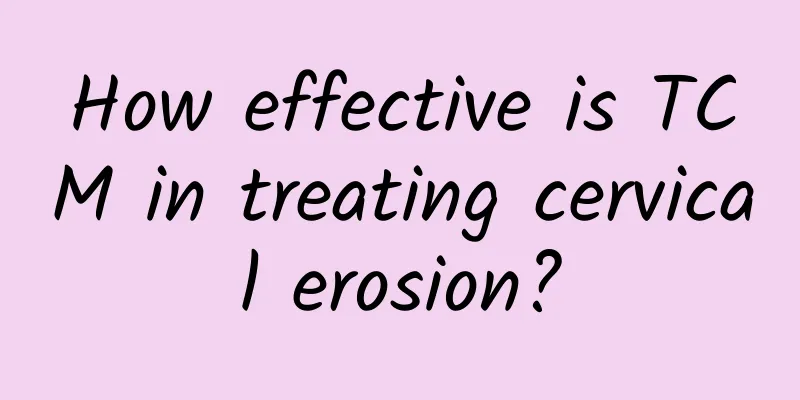Hospital for women with dysmenorrhea

|
When we talk about dysmenorrhea, I believe all women understand that the disease has a high incidence rate and is difficult to treat. However, many people who suffer from this disease do not actively seek treatment, thinking that such a problem is normal. This idea is wrong. Dysmenorrhea can be effectively treated, but you have to go to a regular tertiary hospital. Large hospitals have certain guarantees. There are also many ways to treat dysmenorrhea, such as: General treatment Mental counseling: Especially for girls who have just started menstruation, we should patiently provide them with general medical and health knowledge, and explain that "menstruation" is a physiological phenomenon of girls' gradual development and maturation. Some physiological reactions such as lower abdominal distension and slight backache are normal. When menstrual blood flows out smoothly, the symptoms will disappear quickly. For those with primary dysmenorrhea, the symptoms will disappear naturally after multiple menstruations or childbirth. For example, applying hot compresses to the lower abdomen can relieve the symptoms when there is pain in the lower abdomen. Drug treatment 1. Analgesics, sedatives, and antispasmodics Codeine is analgesic, salicylates are antipyretic and analgesic, chlorpromazine is sedative, and anti-catecholamine drugs block catecholamine receptors and inhibit the peripheral parasympathetic nervous system. 2. Oral contraceptives Combination therapy of estrogen and progesterone in oral contraceptives, taking ethinyl estradiol and norethindrone progesterone daily for 20 to 22 days can inhibit ovulation. Ethinyl estradiol plus norethindrone can also be used once a day for 20 to 22 days to achieve the purpose of inhibiting ovulation and eliminating dysmenorrhea. 3. Prostaglandin antagonists Indomethacin suppository is a prostaglandin antagonist; applying it once a day before and during menstruation can reduce uterine activity, decrease the frequency of uterine contractions, reduce intrauterine pressure, and significantly relieve pain, mainly by antagonizing the secretion of prostaglandins. Patients with dysmenorrhea must go to a regular tertiary hospital for treatment. This has been introduced in the above content, as well as an introduction to the treatment methods for dysmenorrhea. I hope it can help everyone. |
<<: How much does Chinese medicine for dysmenorrhea cost?
>>: Symptoms of bilateral ovarian cysts
Recommend
How are uterine fibroids diagnosed?
Uterine fibroids are a benign tumor. They are mor...
What are the causes of irregular menstruation?
What are the causes of irregular menstruation? Th...
Things that can cause miscarriage if a pregnant woman touches them
Pregnant women may experience miscarriage if they...
What are common uterine fibroids? Is it normal to have uterine fibroids?
What are common uterine fibroids? Is it normal to...
Do not ignore the harmful manifestations of cervicitis
In life, cervicitis is also a major disease that ...
Can ectopic pregnancy be detected with test strips?
Can ectopic pregnancy be detected using test stri...
What to do if you have diarrhea after an abortion
Diarrhea is medically known as diarrhea. Diarrhea...
What is the reason for yellow leucorrhea with smell?
What is the reason why vaginal discharge after ab...
What should you avoid eating when you have dysmenorrhea? Cold foods
Many women experience pain during menstruation. I...
Which method is better, surgical or medical abortion?
Many women may consider medical abortion because ...
What are the symptoms of female pelvic effusion?
What are the symptoms of pelvic effusion in women...
Chronic salpingitis can cause ovulation bleeding
Chronic salpingitis may cause ovulation bleeding,...
People need to pay attention to common ways to prevent adnexitis
In recent years, with the increasing incidence of...
Is it better to eat yogurt before or after meals? Nutritionist reveals the best time to eat yogurt! Keep in mind the key points of option 2
The sweet and sour, rich flavor of yogurt is a fa...
What medication is better for treating cervicitis?
Cervicitis is an inflammation of the cervical muc...









